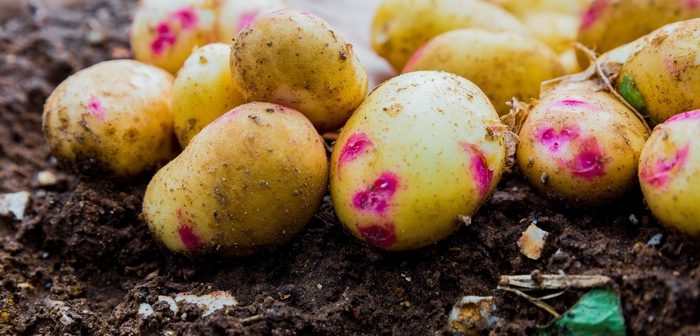Results from the Hutchinsons Fenland demonstration in Suffolk have proven how important careful variety selection is for managing key agronomic challenges.
The Fenland trials focused on showing variety characteristics to be a particularly important for potato cyst nematode (PCN) control, while other work shows the loss of diquat for desiccation and haulm management could further affect planting decisions.
This year’s trial site, hosted by A.L Lee Farming Company, was under higher PCN pressure than previous seasons. 18 varieties with different levels of resistance and tolerance were trialled to see how crops performed and how they impacted on the PCN egg count in the soil after harvest (Pf).
Results found a similar pattern to previous years, with Cara performing worst for PCN multiplication, with a Pf:Pi ratio of 4.5. This was despite it doing well in the tolerance trial and shows the clear practical differences between “resistance” and “tolerance”.
John Keer of Richard Austin Agriculture, says in regards to PCN that although nematicides remain useful, growers should capitalise on varietal resistance and tolerance.
He said: “Our work over three years shows real inroads can be made into PCN control with judicious use of the most appropriate varieties, and it may be possible to “buy” leeway to grow less resistant varieties in combination.”
PCN tolerance is heavily dependent on soil type and moisture, as very fertile soils can be more forgiving to the effects of PCN, while dry conditions reduce nematode movement, Keer added.
CPIC Warning
Potato growers are urged not to risk applying any chlorpropham (CIPC) sprout suppressant to the 2020 crop, even though there may be time to do so before the final use-up date of 8 October 2020.
David Wilson of AHDB Potatoes says after the October cut-off, the Maximum Residue Limit (MRL) will immediately drop to a new lower level, which any crop treated in that season is likely to exceed, therefore preventing it from being sold.
“If you fog them, you can’t flog them” is the AHDB slogan to warn growers of the risk.
“The MRL is a real challenge for the industry,” adds Wilson. “Don’t be tempted to squeeze one more CIPC application onto the 2020 crop, because the risk of exceeding the MRL is too high.”




